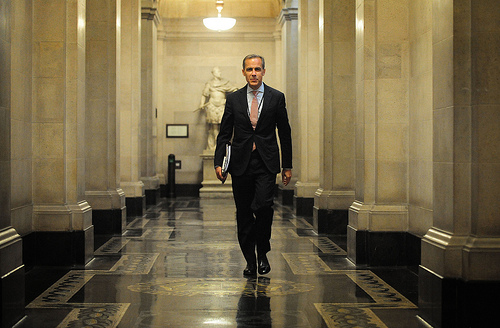Investing
Interest rates held at 0.5% for 53rd month

The Bank of England (BoE) has held interest rates at 0.5% for the 53rd consecutive month in its July meeting.
The Bank also opted not to increase the size of its £375bn quantitative easing programme.
It had been expected to keep policy unchanged in Mark Carney’s second meeting as governor, having last month issued guidance telling investors not to expect a rise in interest rates in the near future.
That statement said: “The implied rise in the expected future path of Bank rate was not warranted by the recent developments in the domestic economy.”
The change in that implied path, suggesting the UK base rate could rise in late 2014, had been triggered by signals the US Federal Reserve may slow down its own QE programme later this year.
No statement was issued alongside today’s policy decision, but Carney is expected to reveal further detail of his guidance plans when the BoE’s latest quarterly inflation report is released next week.
The decision to hold the base rate will be welcome news for home owners.
Ben Thompson, managing director of the Legal & General Mortgage Club, said:
“After recent rumblings that bank base rate may be on the rise, borrowers will be pleased to discover that it has been held at its historic low for another month.
“Low rates, combined with the first few reports of homebuyers coming through the Help-to-Buy scheme, highlight the confidence that is returning to the market.
“However, the debate continues around whether Help-to-Buy is set to cause a housing bubble. Whilst the market appears to be thriving in some areas, it is a slower process across other regions in the UK.
“The recovery is currently being supported by Government stimulus. To suddenly remove such support would risk a stagnation or reversal of the headway that’s been made. Whilst the signs are all positive, the industry needs to consider how it will sustain itself once external stimulus is removed. A start would be to tackle the issue of suitable housing currently available.”